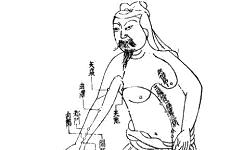Using Acupuncture To Help With Bulimia
 Acupuncture is used to treat bulimia based on the idea that it is a gastrointestinal disorder. The discipline uses needles inserted into various points on the body to alter the flow of energy with the idea that this can remedy symptoms.
Acupuncture is used to treat bulimia based on the idea that it is a gastrointestinal disorder. The discipline uses needles inserted into various points on the body to alter the flow of energy with the idea that this can remedy symptoms.
Mainstream Western medicine rejects these ideas and thinks of bulimia as primarily a mental disorder – one where anxiety and other underlying mental conditions lead to the unwanted behaviors. Therapy in this model is then directed at addressing any emotional problems (such as depression or anxiety) and training patients to adopt new, healthy eating behaviors.
A whole-health package
In the United States, acupuncture is generally seen as an adjunct therapy with the idea that adding it to a more “standard” treatment regime shouldn’t hurt and might even help or help a great deal. In this role, some medical organizations, while not suggesting acupuncture for primary care, do not reject it either – especially as an additional, whole-health package. Whole health would include nutrition, exercise (yoga is popular), herbal remedies and other alternative treatments in a supplementary role.
It would be a rare therapist who, on finding out that something helped their patient (even something they disagreed with), would ask a patient to stop. So, for example, if caring for horses seemed to help a patient keep up with good eating habits, then caring for horses is a good idea for that person.
Acupuncture as treatment
Balancing energy flows through traditional Chinese acupuncture may also include using meditation, herbal medicine and massage. Treatments often overlap so that a treatment for bulimia may be similar to one for stomach bloating, nausea, abdominal discomfort and a variety of nervous disorders. As with all alternative medical treatments, there are proponents and success stories. However, medical doctors are loath to recommend acupuncture as a primary treatment without having clear studies which show positive effects.
It is possible to have the best of both worlds by getting a diagnosis and treatment plan from a doctor, and then using alternative medicine, including acupuncture, as an additional therapy. Certified and licensed acupuncturists will accept this role and be happy to partner with your regular therapist.
 Eating Disorder Self Test. Take the EAT-26 self test to see if you might have eating disorder symptoms that might require professional evaluation. All answers are confidential.
Eating Disorder Self Test. Take the EAT-26 self test to see if you might have eating disorder symptoms that might require professional evaluation. All answers are confidential.